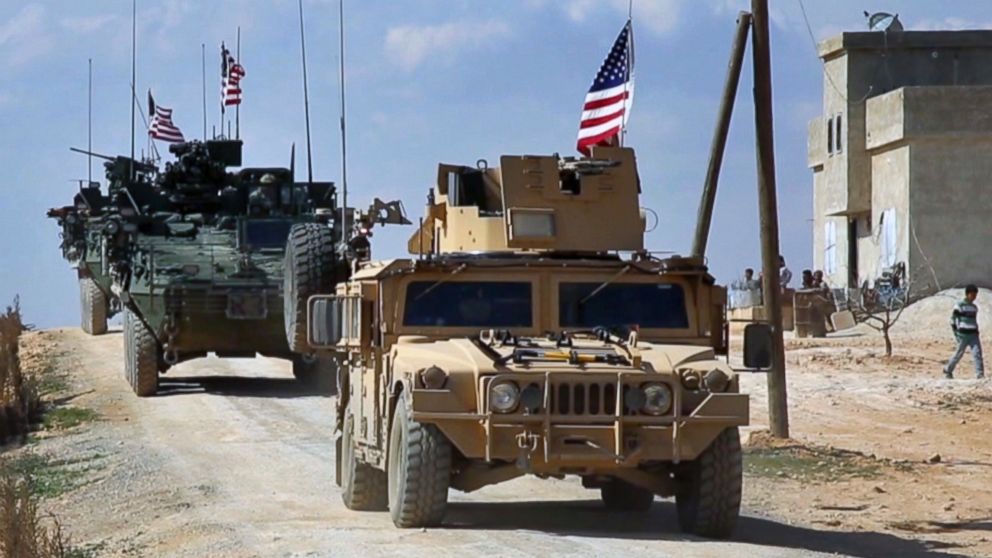Trump gives Pentagon authority to set troop levels in Syria and Iraq
— -- President Trump has delegated to the Pentagon the authority to set the American military troop levels in Iraq and Syria. The move restores a process that was in place prior to the Bush and Obama administrations and is another sign of how the White House is giving military commanders greater flexibility in their operations.
"The President has delegated the authority for Force Management Levels (FML) for Iraq and Syria to the Secretary," said Captain Jeff Davis, a Pentagon spokesman, referring to Defense Secretary Jim Mattis.
Davis said the authority is being returned to the Pentagon where it had typically existed prior to the Bush and Obama administrations.
"It’s as much about auditability as it is authority," said Mattis. "The Secretary wants to ensure that we had a way to clearly understand the forces we have there and how they’re being used."
The adjustment does not mean that the numbers of troops in Iraq and Syria is going to change "nor does it change the process by which we will manage those forces" said Davis.
The Pentagon is currently authorized to have 5,262 American military forces in Iraq and 503 for Syria to train, advise and assist the Iraqi military and Syrian rebel forces fighting ISIS.
But the number of troops in those countries is actually higher because additional forces on temporary assignments lasting less than 180 days are not counted as part of the official Force Management Level. That means there are more than 6,000 American troops in Iraq and more than 900 American troops in Syria.
The capping of troops has also meant that some of the support and maintenance duties that would have been handled by military personnel are handled by contractors.
The delegation of the authority of Force Management Levels in Iraq and Syria was first reported by Buzzfeed News.
The Pentagon will now review the current system that has incrementally increased troop levels in the fight against ISIS and come up with its own system.
"It will account for the fact that there will be enduring baseline numbers and that there will be temporary enhancements above those," said Davis.
"Bringing the authority really back here where it’s historically been enables military commanders to be more agile, to more quickly and efficiently support partners, to have more rapid decision-making, and to keep units together," said Davis.
"This is not new," he added. "It simply restores authority and it’s a more effective way of managing it."
Mattis will be able to set troop levels in Iraq and Syria, but the broad strokes for the American military missions there will still be closely coordinated by the administration and other agencies.
The delegation of authority does not apply to Afghanistan where the number of troops is capped at 8,440. The Trump administration is currently reviewing its Afghanistan strategy and the authority for setting troop strengths there will still be handled by the White House.
The top U.S. military commander recently told a congressional panel that he would like to see additional troops to assist with the train and advise mission in Afghanistan.




